
Forum Z on war experiences in Schifflange
On 22 February 2023, the WARLUX research team invited the public to a Forum Z aimed at exploring wartime experiences in Luxembourg, with a particular focus on Schifflange during the Second World War. Beyond the discussions, this event was a unique opportunity for citizens to provide first-hand accounts by sharing personal wartime documents, which were promptly digitised on site for preservation and further study.

Facilitating collaboration between researchers from Ukraine and Luxembourg
On 24 March 2023, the C2DH hosted the fifth meeting of the Luxembourg Ukrainian Researcher Network (LURN). Throughout 2023, LURN developed international cooperation, establishing ties with sister associations in Germany and France. Following the resounding success of the BeNeLURN conference in March, which aimed to foster collaboration among scholars from Europe and Ukraine, connections with Belgium and the Netherlands have been further solidified.
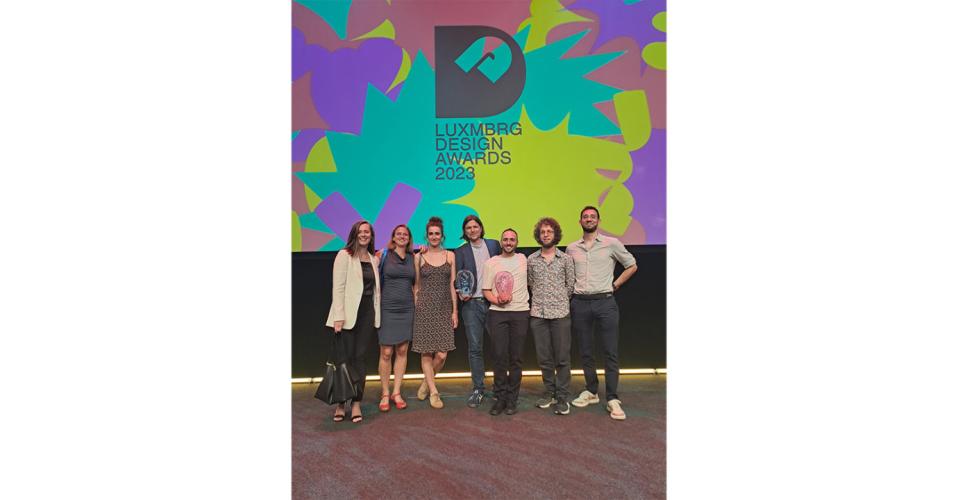
Four Luxembourg Design Awards recognise the digital achievements of the C²DH
The C²DH clinched the Gold Award in the “Digital Design” and “Corporate Design” categories for its transmedia documentary A Colônia Luxemburguesa, created in collaboration with Samsa Films and Explose. Another Gold Award in the “Data Design” category came for website “Framing Luxembourg”, developed with support from STATEC, which offers a statistical history of Luxembourg. Meanwhile, the virtual exhibition “Minett Stories: Remixing Industrial Pasts in the Digital Age”, developed as part of Esch2022, won a Silver Award for Digital Design.

Launch of the “Radio Luxembourg” project
“Radio Luxembourg – The Station that Changed Our World” is a 360° transmedia documentary project telling the fascinating stories behind one of the world’s most influential radio stations, broadcast from one of the world’s smallest nations. It explores how Radio Luxembourg used its power and the formative influence it had on generations of listeners worldwide. The project was officially launched at the Luxembourg Embassy in London on 23 June 2023.
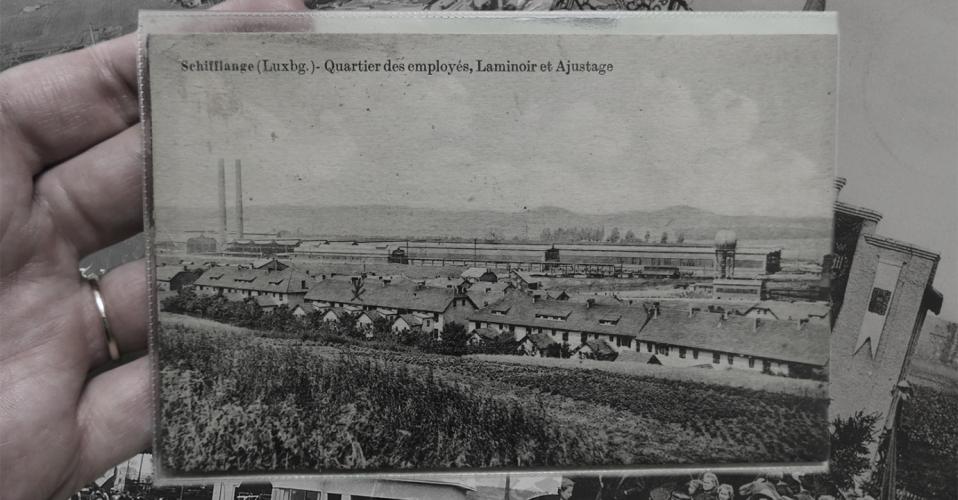
Launch of the public history project “Historesch Gesinn”
In Luxembourgish, historesch gesinn can mean both historically speaking and historically seeing. Likewise, this project aims to engage the general public with the history of Luxembourg through visual and auditory means. Historesch Gesinn will become a social hub where residents can enrich the historical narrative by sharing personal testimonies and photographs, while also providing insights into the scientific process of historical enquiry. Supported by a “Promoting Science to the Public” grant from the Luxembourg National Research Fund (FNR), the initiative aims to foster a deeper connection between citizens, their shared heritage and science.
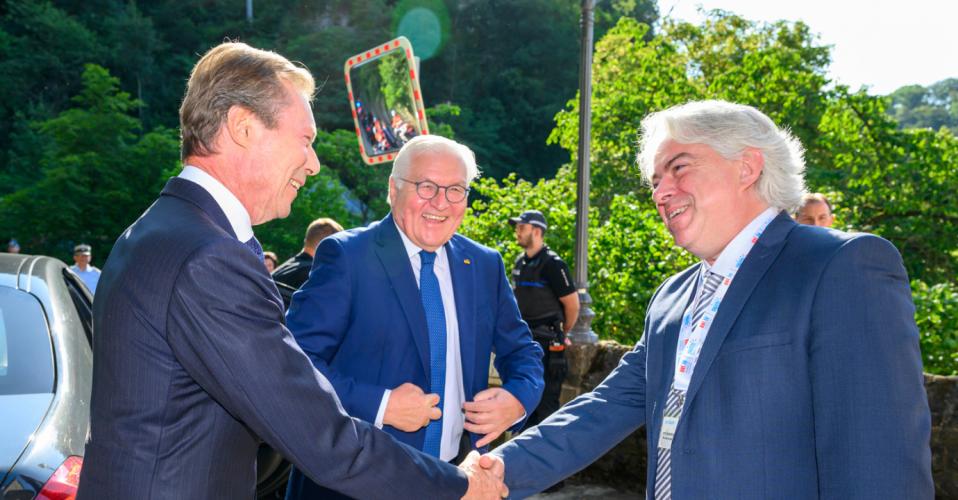
State visit at the Robert Schuman House
As part of a state visit to Luxembourg, the President of the Federal Republic of Germany, Frank-Walter Steinmeier, and His Royal Highness the Grand Duke of Luxembourg were welcomed by the Director of the C²DH, Andreas Fickers, at the Robert Schuman House in the Clausen district of Luxembourg City on 11 July 2023. The childhood house of Robert Schuman, one of the founding fathers of the European Coal and Steel Community, is recognised as a highly symbolic place of memory.
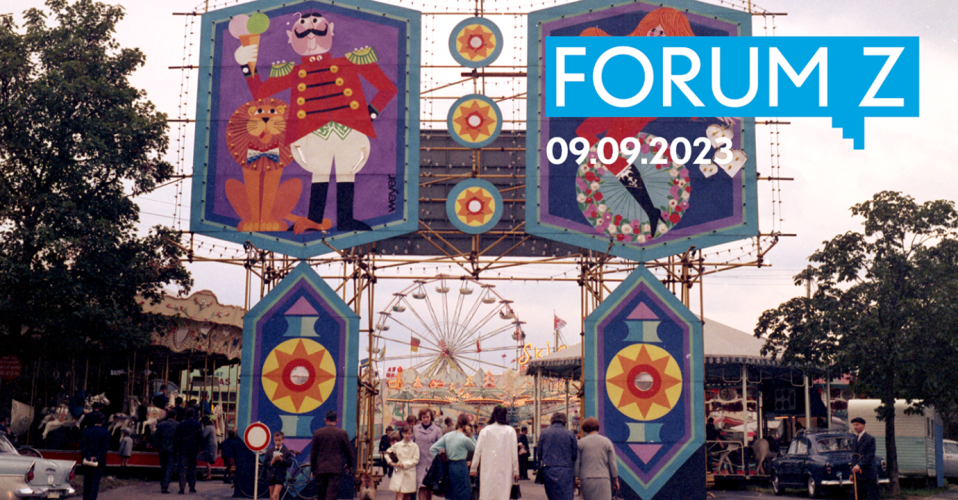
Forum Z – Fo’er an de Sixties: Vu Boxeren a Fritten
On 9 September 2023, in collaboration with Luxembourg City Council and the restaurant “An der Flesch”, the C²DH held a Forum Z about Luxembourg’s largest funfair at the fair itself. Some 50 people met to discuss what it was like to visit, work at or organise the “Schueberfouer” during the long 1960s. After a brief introduction about the importance of contemporary history by Assistant Prof. Dr Denis Scuto from the C²DH, several panellists shared knowledge, personal experiences and anecdotes. The discussion was graphically recorded on a 4 x 2-metre wall by Dr Katy Fox from Mycelium, giving a real-time overview of what was being shared. Seeing the discussion unfold on this large screen during the event was a creative way of structuring and contextualising the narrative.

Gábor Mihály Tóth awarded the Richard Deswarte Prize in Digital History
The 2023 Richard Deswarte Prize in Digital History was awarded to C²DH researcher Gábor Mihály Tóth, lead author of the article “Studying Large-Scale Behavioral Differences in Auschwitz-Birkenau with Simulation of Gendered Narratives”, published in Digital Humanities Quarterly 16:3 (2022) and co-written by Tim Hempel (Microsoft Research/Freie Universität Berlin, Department of Mathematics and Physics), Krishna Somandepalli (Google Research) and Shri Narayanan (University of Southern California, Viterbi School of Engineering).
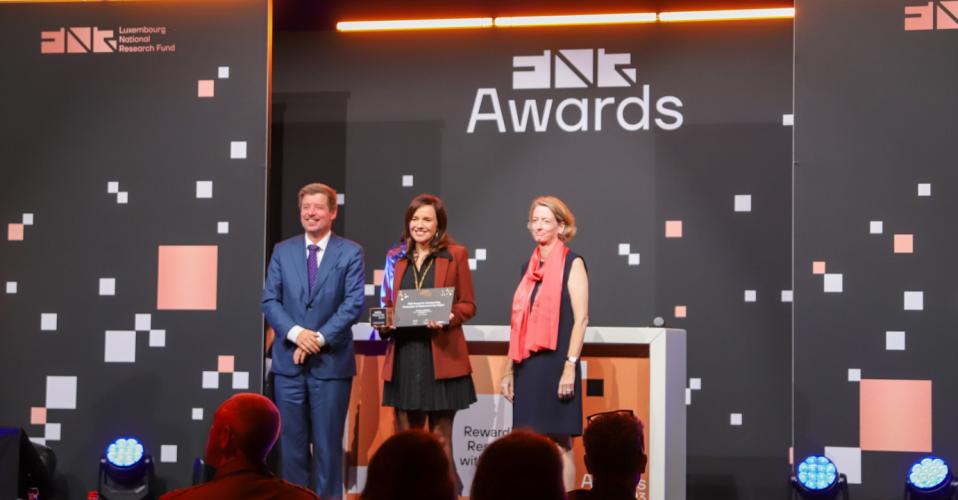
“A Colônia Luxemburguesa” wins FNR Award
On 19 October 2023, Dominique Santana was awarded the FNR Award for Outstanding Promotion of Science to the Public for the project “A Colônia Luxemburguesa”. Two other C²DH projects were also shortlisted: Thomas Cauvin and Joëlla van Donkersgoed with “HistorEsch: Public History Activities in the city of Esch-sur-Alzette” for the FNR Award for Outstanding Promotion of Science to the Public, and Frédéric Clavert with the “Journal of Digital History” for the FNR Award for Outstanding Scientific Achievement.

“Minett Stories” wins Dibner Award
The 2023 Dibner Award for Excellence in Museum Exhibits went to the “Remixing Industrial Pasts in the Digital Age (REMIX)” team for the “Minett Stories” online exhibition.
Minett Stories explores the history and identity of the Minett, the industrial region in southern Luxembourg, through 21 captivating stories. The exhibition was funded by the European Capital of Culture Esch2022 and developed in collaboration with the Milan-based design studio Calibro and Bergamo-based software company Inmagik.

Forum Z - GAME TIME: Exploring History Through Play
The aim of this Forum Z was to explore the intersection between history and play.
How do video games represent the past and bring history to life? How accurately do they portray historical events? How do game designers balance between facts and creative storytelling? Can games be used in the classroom as tools for history education? Can they be used to improve our understanding of historical processes and promote social, political, and cultural activism?